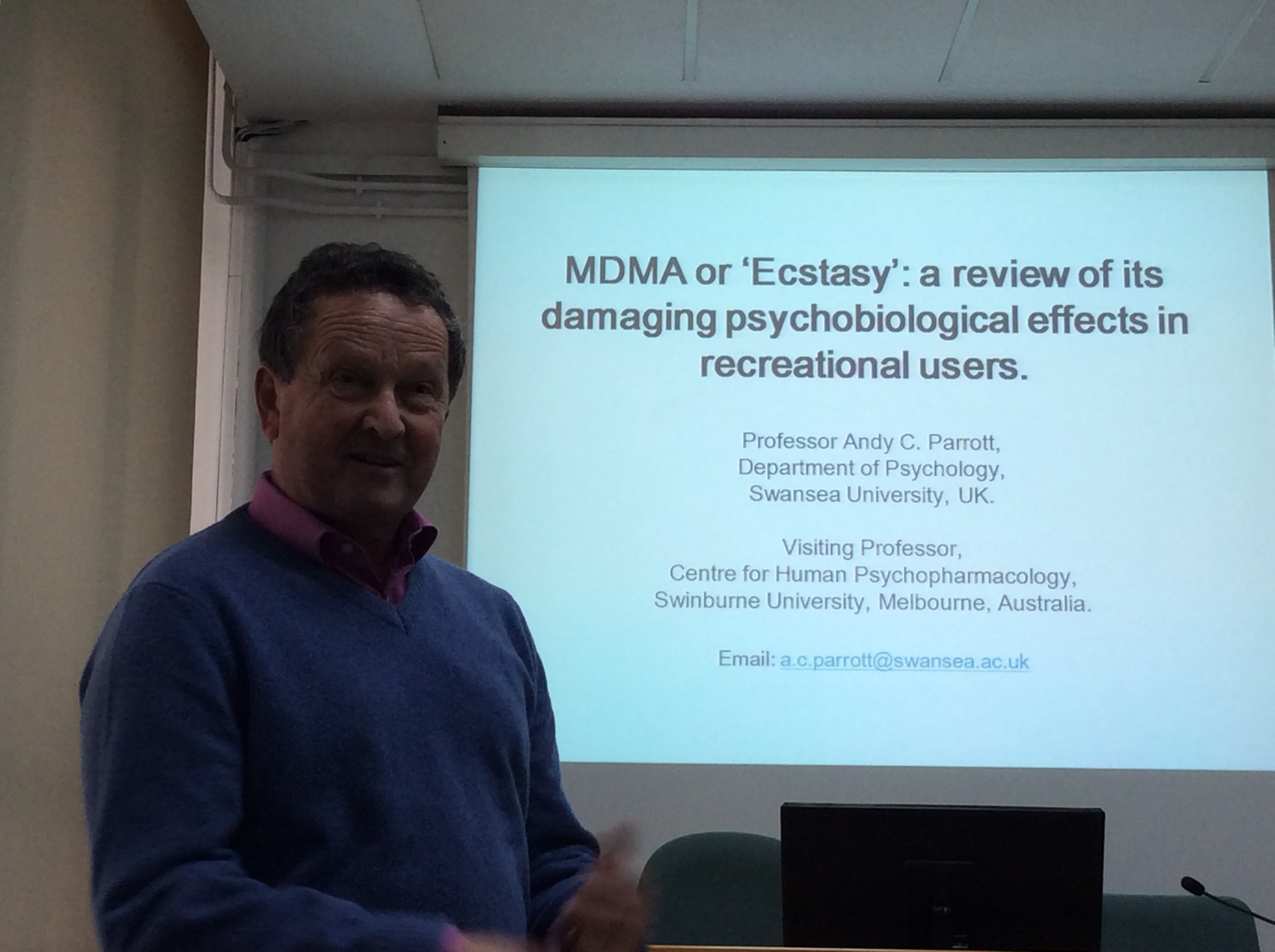
Dr. Andrew Parrot is a professor in the Department of Psychology of
the Swansea University, United Kingdom."
On 1 February 2017 the professor Andrew Parrot presented us an extensive review about the drug MDMA or Ecstasy. At the conference, he pointed out that nowadays, young people have more accessibility to get different drugs which are being carried out with a variety of polydrug. Specifically, in their studies they have highlighted that over the past decade, the MDMA used is purer and is consumed in larger quantities. A powerful chronic tolerance is produced in large ecstasy consumers. This develops into less-effective drug effects and an increased number of pills ingest at the same period. Many of these consumers inject the substance into their bloodstream in an attempt to increase the effects, but instead, it aggravates the adverse symptomatology produced by ecstasy and it is not investigated in depth.
In a comprehensive and synchronized way he revised the studies conducted since the 70s or 80s to the present. He pointed out that hyperthermia and hyponatremia are among the symptoms that lead to emergencies and in several occasions, to death. There is a bigger risk for women which means that they are a population where a proper investigation should be realised (e.g. the investigation of the menstrual cycle). He pointed out that the acute consumption of MDMA increases the blood cortisol thereby presenting a drug that serves as a bioenergy stress. The individual feels an intensification of perceptions dependent of the environment. However the chronic consumption produces serotonergic neurotoxicity that correlates with the history of previous consumption.
He pointed out that it is not easy to observe a clear behavioural deterioration after the consumption because the serotonin is a neuromodulator that regulates and intervenes in multiple roles such as the sleep, the aggression, the sex, the mood or the fear. At the physiological level intervenes in the cardiovascular activity, in breath control, the intake and the start of the motor activity. It is also related to the memory consolidation, the presence of depression and psychiatric disturbances. This general intervention of the serotonin in the functioning of the individual produces a widespread deficit in chronic consumers that several studies have already highlighted in both cognitive alteration and functional.
To conclude he said that this drug, along with others such as cocaine, had its beginnings when its harmlessness was raised to observe after the investigation its danger.
Links:






